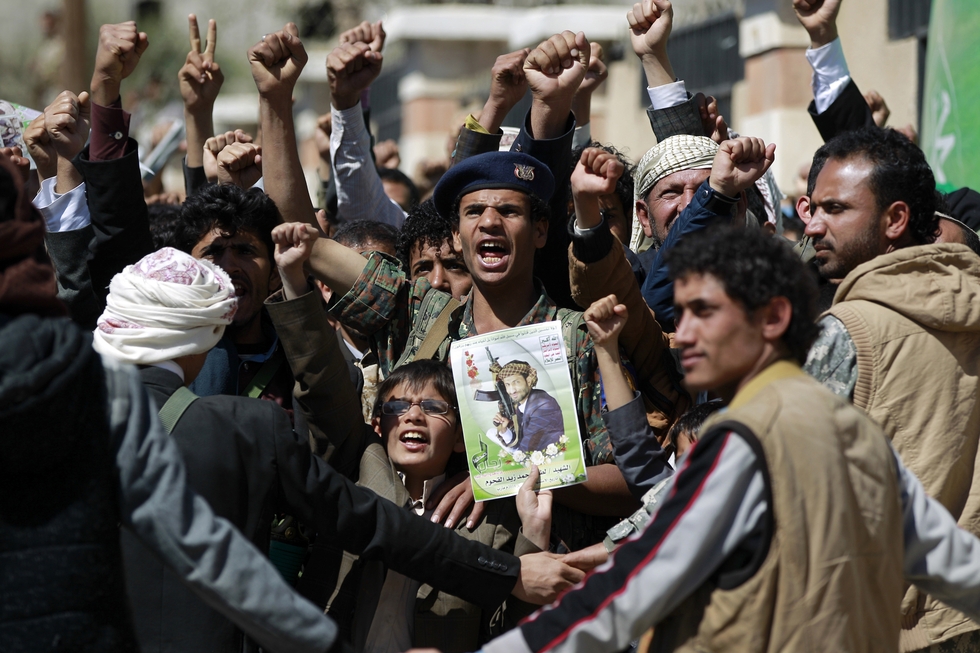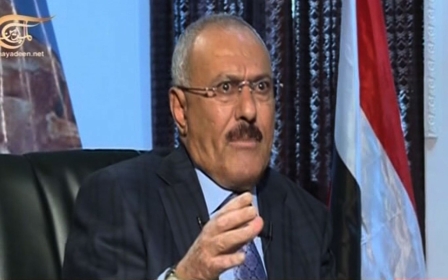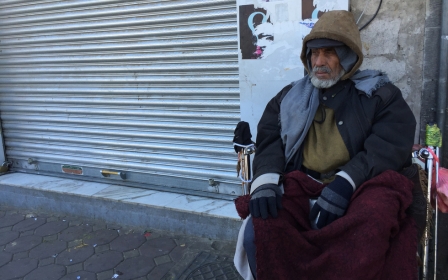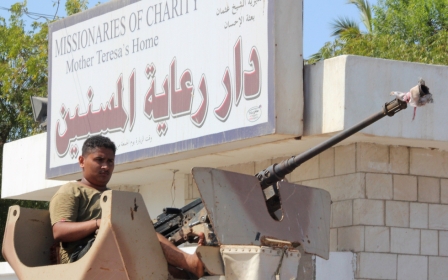Houthis travel to Saudi Arabia for Yemen peace talks: Sources

Yemen's Houthi movement has sent officials to Saudi Arabia to discuss ending the war in Yemen, according to two Houthi officials and a source close to former president Ali Abdullah Saleh.
Two unnamed officials from a Houthi-controlled administrative body confirmed the visit to Reuters, saying it started on Monday. It is the first visit to the kingdom by the Houthis since the Yemen war began in March 2015.
A source close to Saleh, who was toppled by a popular uprising in 2012, told Middle East Eye that a Houthi delegation had travelled to Saudi Arabia but without representation from the former president.
Saleh fought several wars against the Houthis during his more than three decades in power, but has recently formed a loose alliance against Yemeni forces loyal to President Abd Rabbuh Mansour Hadi and their allies the Saudi-led coalition.
Reuters reported that the Houthi-Saudi talks began after “a week of secret preparatory talks”.
The Saleh source, who asked to remain anonymous, said the absence of any representation from Saleh’s General People’s Congress proved the weakness of the Saleh-Houthi alliance, which they said was “one of convenience”.
A Saudi activist in Riyadh who asked to remain anonymous told MEE that a prisoner exchange had taken place between the Houthis and Saudi Arabia before the talks began.
Footage sent by the activist, which MEE could not verify, is said to show Houthi vehicles crossing into Saudi Arabia to complete the prisoner swap, of which no further details are known.
A spokesman for the Saudi-led coalition did not respond to Reuters when asked to comment on the talks, and Saudi officials in London did not respond to Middle East Eye.
Yemeni journalist Hussain al-Bukhaiti, who has close links to the Houthis, told MEE that the talks will seek to circumvent UN efforts to broker peace talks.
"There will be talks between Saudi and Houthis to seek a way to build trust and end the war in Yemen because all previous negotiations with UN mediation saw lots of things lost in translation, so it is better to meet directly for all side to talk about steps to stop the war."
However, he added that the central motivation for the meeting was about further prisoner exchanges.
"It's also a tribal meeting to open channels of trust for any future prisoners exchange. Sheiks from both side of the borders have met and this has happened during previous borders tensions throughout the two countries histories," he said.
"Because the fight on the border [between Yemen and Saudi] is mainly impacting the tribes there, so they have met to see what could they do to help bring understanding and trust between the two sides."
Saudi Arabia launched a coalition of Arab nations in March 2015 to push back Houthi militants who had swept down from their northern stronghold of Saada and seized control of the capital Sanaa, forcing Hadi into exile in Riyadh.
Saudi leaders view the Houthi movement as being backed by their regional rival Iran, and they have said they will not allow Iranian influence to grow in Yemen, a country that shares a long land border with Saudi Arabia.
Over the past 12 months, fierce fighting has killed nearly 9,000 civilians according to the UN, who have reported that more than 80 percent of the country’s 25 million people now require some form of humanitarian assistance.
All sides in Yemen’s war have been accused of committing war crimes, however; the UN said in January that the Saudi-led coalition has engaged in “widespread and systematic” targeting of civilians, adding that civilians have been deliberately starved as a war tactic.
New MEE newsletter: Jerusalem Dispatch
Sign up to get the latest insights and analysis on Israel-Palestine, alongside Turkey Unpacked and other MEE newsletters
Middle East Eye delivers independent and unrivalled coverage and analysis of the Middle East, North Africa and beyond. To learn more about republishing this content and the associated fees, please fill out this form. More about MEE can be found here.




